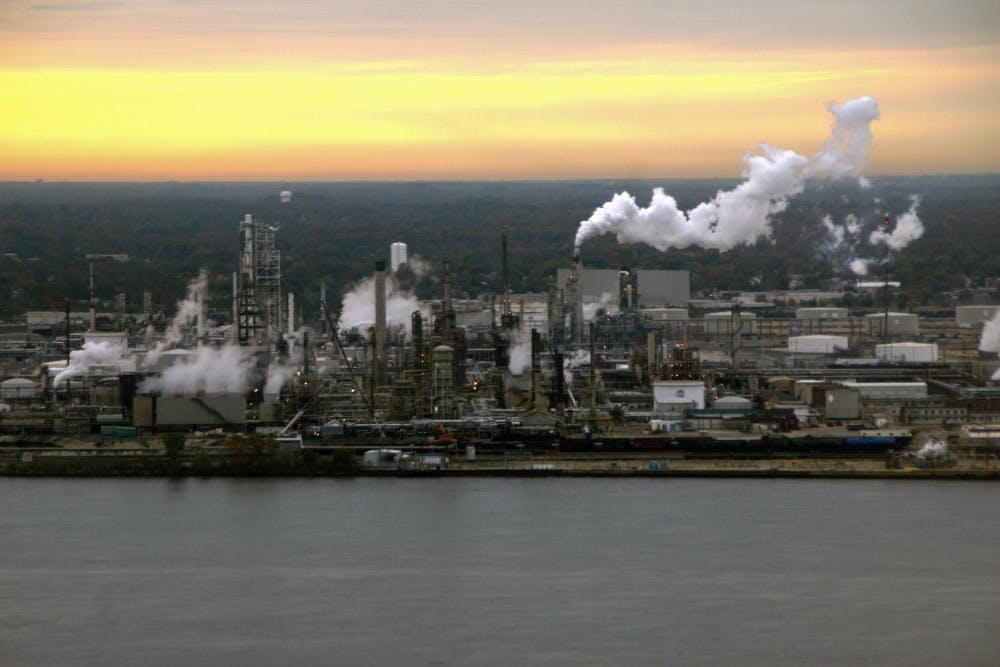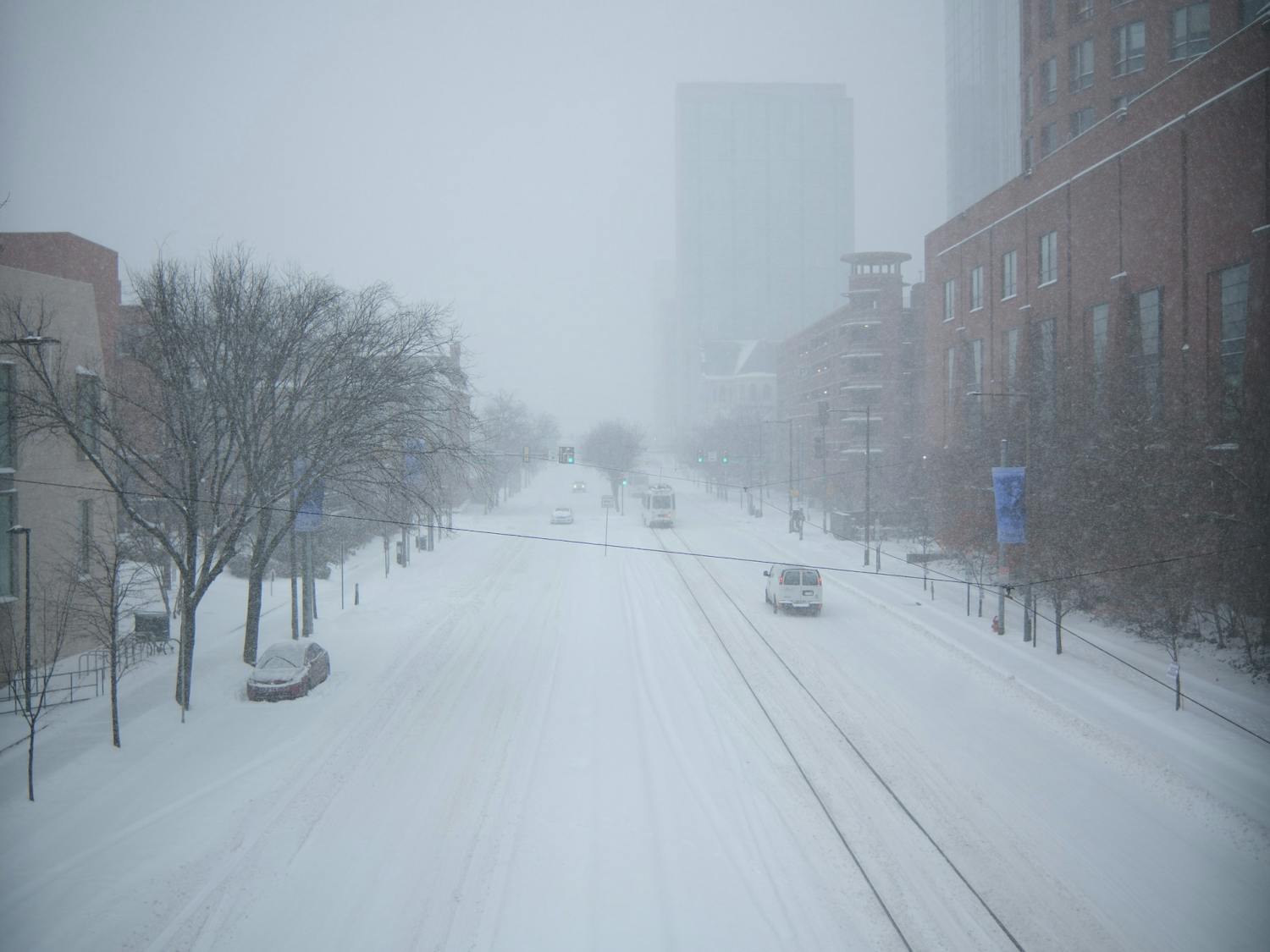“We’re here to make a statement. We’re here to start a fight. We’re here to let the people know that breathing is our right.”
Singing voices echoed from the east side of City Hall last Friday, June 21, just hours after residents in South Philadelphia neighborhoods were shaken awake from a three-alarm explosion at the Philadelphia Energy Solutions (PES) Refinery Complex.
Clutching “Right to Breathe” and “It’s Time to Pay, PES” posters, South Philadelphia residents and numerous ally groups joined together with fired-up voices to demand better from PES operators, Philadelphia City Council members, Mayor Kenney, and officials from Philadelphia Air Management Services and the U.S. Environmental Protection Agency. For years, these elected officials have turned a blind eye to the environmental and public health risks of Big Oil, and have deplorably lacked reliability, transparency, and genuine interest in the well-being of nearly 45,000 residents living within a 1-mile radius of the refinery — 71 percent of which are people of color and 32 percent of which are below the poverty line.
Eastwick, Grays Ferry, and other communities living in close proximity to the bankrupt facility — the largest fossil fuel refinery on the East Coast and the largest generator of toxic air emissions in Philadelphia — have long suffered the health consequences of heavy pollution, with the poorest neighborhoods currently experiencing an asthma rate 2-3 times the national average. Just two weeks prior to the explosion, another fire erupted from the PES refinery, causing nearby residents to question the safety of the refinery’s dangerously old infrastructure and leaving many feeling enraged, fearful, and helpless.
“I do everything I can to close my windows and keep this pollution out of my house. But when these fires happen, it shows there really is nothing we can do to protect ourselves,” said Grays Ferry resident Sonya Sanders.
South Philadelphia residents should not have to live in fear. And not only have they long been entitled to a thorough, independent investigation by city, state, and federal scientists on the long-term health risks of chronic particulate exposure, but they deserve a groundswell of support from Philadelphia’s neighboring communities.
Despite being just a few miles away, the thick smoke that continues to billow from the PES refinery poses a prescient and necessary reminder to most Penn students that the harmful effects of the nation’s highly emissive oil industry are real and ominously close to home. And in addition to the series of enraged Facebook posts from concerned students responding to the disaster, there is even more the Penn community can offer.

Students need to stand up and voice their opinions about the Clean Air Act violations committed by the oil refinery.
SEE MORE FROM MAEVE MASTERSON:
Why metal straws are not enough to fight climate change
Penn’s investment in fossil fuels contradicts commitment to love
It is our duty, as neighbors and friends, to respond with outrage to the refinery’s numerous Clean Air Act violations and consequential heavy pollution — what residents refer to as the “silent killer.” We shouldn’t need to hear the explosions, feel our homes shake, or breathe in the toxic particulates to take action and voice solidarity. We shouldn’t need to have sisters with breast cancer or brothers with asthma to expose the criminal nature behind the City Council’s recent 13-4 vote to expand fossil fuel production with Philadelphia Gas Works’ $60 billion liquified natural gas facility. We shouldn’t need to understand the physics behind global warming or become a climate activist to cry out against Big Oil.
In the end, this is not about climate change. This is about environmental injustice. This is about a brutally extractive fossil fuel industry that has dominated local and federal systems of power — systems that are expected to ensure environmental oversight and regulation, but have instead chosen to prioritize the bottom line over the safety of under-served low-income and minority communities that, day by day, are forced to pay the costs of power plant pollution with medical bills and fear.
Gather your friends and families and show up to Philly Thrive’s direct action this Tuesday. Listen to your neighbors’ stories. Empathize with their daily struggles. Look them in the eye and reach out your hand. And someday, if you find yourself unprotected by your city’s local elected officials or struggling to breathe clean air, they will be by your side.
[Philly Thrive’s direct action is this Tuesday, June 25th at 1pm at PES Refinery gates (28th and Passyunk).]
[Sign the petition, demanding that the Philadelphia City Council fund and commission a study for the decommissioning and re-purposing of the dangerously risk-prone facility into restored public land and community-owned energy projects. The demands also call for Air Management Services and the Environmental Protection Agency, who have failed to penalize PES for violations, to enforce PES to cover residents’ medical bills for hospital visits, direct fines toward neighborhood projects, hold a public meeting to report on toxic releases and enforcement actions, and prevent the PES-protecting Title Air V permit from renewal in July.]

MAEVE MASTERSON is a College sophomore from Chicago studying Environmental Management and Sustainability. She is an active organizer for Fossil Free Penn, a cellist in the Penn Symphony Orchestra, and a circular economy enthusiast. Her email address is mmaeve@sas.upenn.edu.
SEE MORE FROM MAEVE MASTERSON:
Why metal straws are not enough to fight climate change
Penn’s investment in fossil fuels contradicts commitment to love









